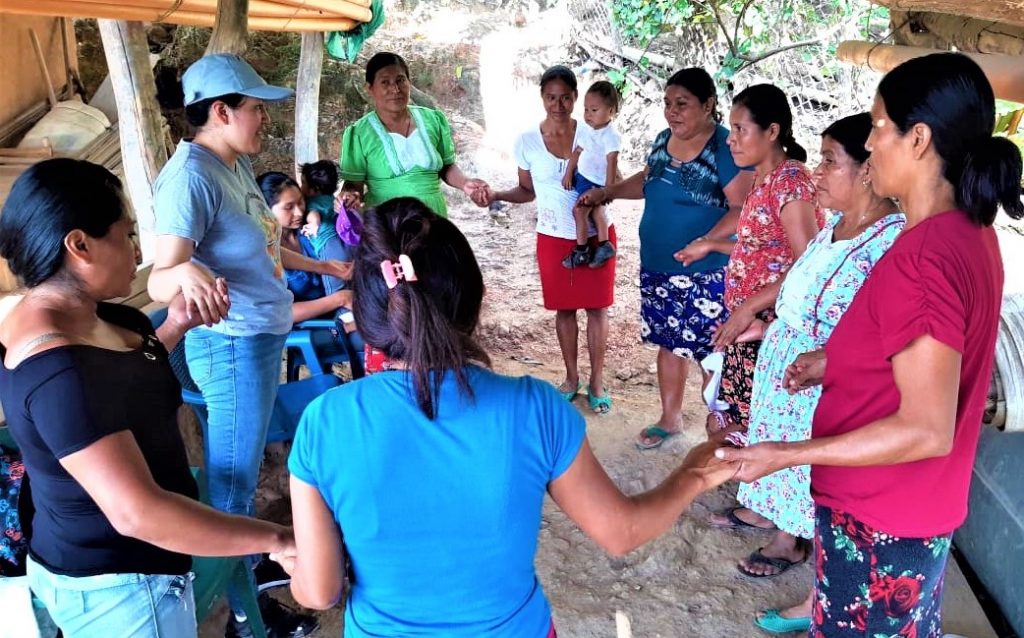Which is your first territory? Is it your home, your neighborhood, your city, your country? Or is it your body? Many campesina women conceive of their bodies as the only personal territory which they have, a territory which, sadly, can be and is violated in many ways.
In the poor communities where Project Harvest works it is very common to see women who are shy, who feel ashamed, who look down, who are afraid to participate, and who do not speak. The reason for these feelings
corresponds to the systematic violence to which their mind, body and spirit are subjected. This situation facing women is sanctioned by the very institutions in their community which ought to be protecting their territory: the church, the school, and the family.
Subtle and overt violence has become part of rural women’s daily lives leaving an invisible mark. (Patriarchy has a long history.) Women grow up with fear which manifests itself collectively in the way they feel, think and perceive the world. If we do not take action to diminish this fear and contribute to the liberation of women, it will be difficult for them to advance in the struggle for their rights as women.
Changing this reality takes a lot of effort, but formation makes it possible. The methodology used by Project Harvest contains elements which allow women to raise their self-esteem and build collective safe spaces. The formation program contributes to defending the body as their personal territory by way of the training itself, meetings and workshops, discussions, and analysis of issues concerning women’s life experience. In each workshop a safe spiritual space (in Spanish Mística) is promoted, where stories and symbols are shared, representing women’s struggles and inspiring them to work for change. The group dynamics, games and activities incorporate movement, laughter and fun. The shared activities are aimed at exposing and rejecting the violence experienced by the women. Through workshops offered by Project Harvest, women gain confidence in their role as leaders, and lose their fear of expressing opinions and of leading groups of women.
The “body-territory” approach is both personal and social. The key to Project Harvest’s formation program incorporates tenderness and understanding, allowing the hearts of women to heal from within. It is a challenge, given the realities that oppress them, but it is a challenge that must be assumed and taken up with much love and courage.

